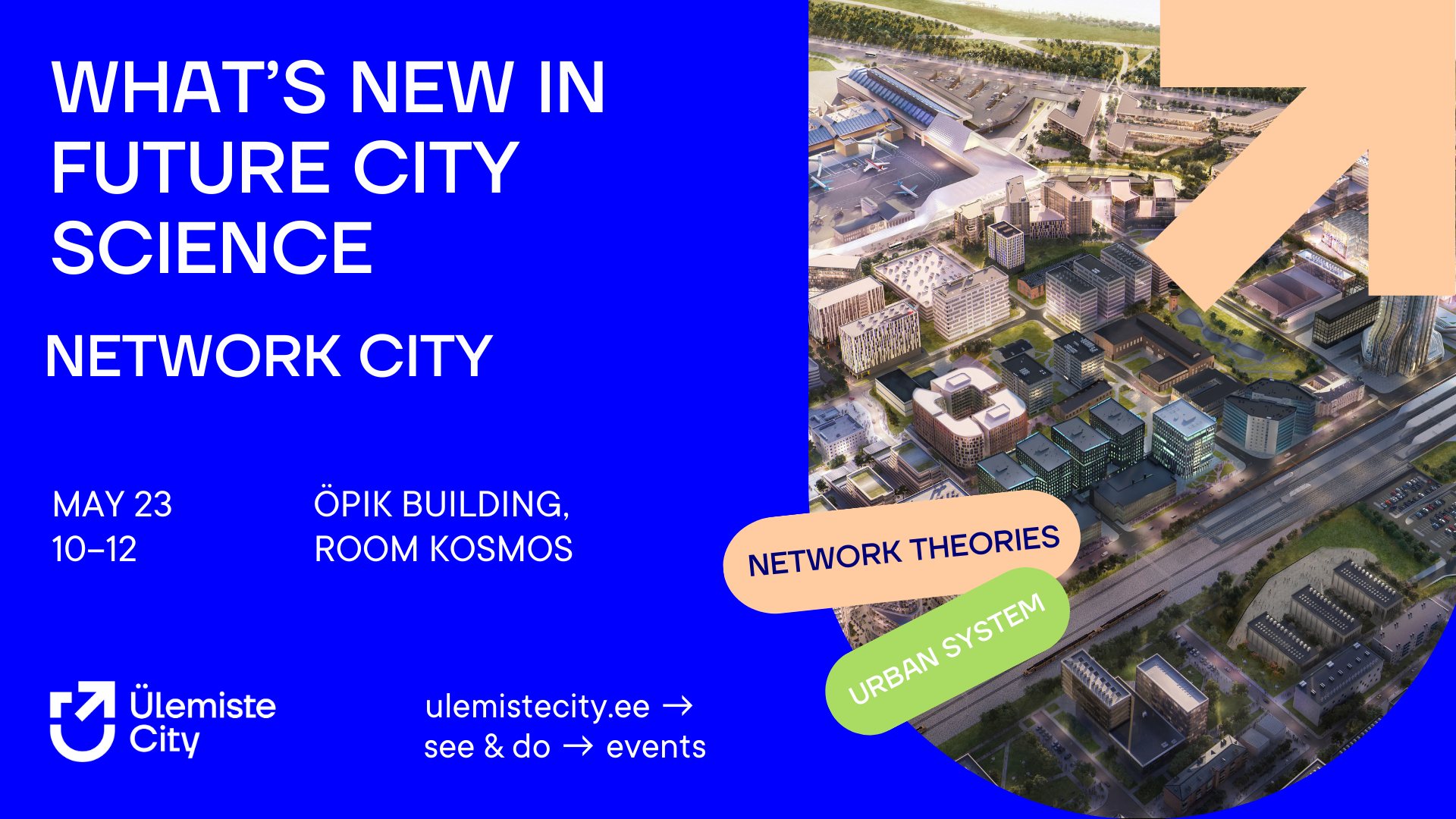
🚊 Together with our City of the Future Professorship team, we are again looking at the future of cities. This time, we will closely look how the different economic actors can contribute to the city economy and vitality. Join us for an exciting overview of the results of research and developments presented by the Future City Professorship team and the City of Tallinn.
📍The seminar will take place in Ülemiste City, Öpik building (room Kosmos) and will be in English. Seminar is free of charge for everyone.
👉 To participate, please register here: https://bit.ly/3LsJgiT.
🤓 The seminar will discuss about urban systems and networks. Networks have formed an established mental model for cities for decades, and they capture well the complexities of urban interactive processes. Urban systems, from economic and cultural to social and ecological systems, consist of nodes and links enabling the flow of goods and information between them. Mathematical and computational network theories provide an interesting perspective to approach complex network cities, revealing features and dependencies that are otherwise impossible to explore.
Programme:
10.00 – 10.25 Network theories in urban science
Networks have formed an established mental model for cities for decades, and they capture well the complexities of urban interactive processes. Urban systems, from economic and cultural to social and ecological systems, consist of nodes and links enabling the flow of goods and information between them. Mathematical and computational network theories provide an interesting perspective to approach complex network cities, revealing features and dependencies that are otherwise impossible to explore.
Jenni Partanen (Professor of Future City in TalTech, Dr, Architect)
10.25 – 10.50 A network approach
Network has an undeniable effect on our lives. we can change it for more safety, more activity and more vitality. We will see how mathematical approaches connect these concepts to each other, and how we can benefit from it in different domains.
Mahdi Rasoulinezhad (PhD Student of Urban Studies at TalTech)
10.50 – 11.15 10.50 – 11.15 Sustainability governance framework as an example of network
Governance can be described as a system of actors, relationships between them and processes that they carry out. Which by definition is a network. We will look at the key processes in urban governance, the actors behind them and challenges of guiding these processes towards sustainability transformation.
Toomas Haidak (City of Tallinn, sustainability governance advisor at Tallinn City Strategic Management Office)
11.15 – 11.45
Q&A, discussion with presenters. About next seminar and blog (prof. Jenni Partanen)
Info: Eneken Titov, AS Mainor, 5094723, Eneken.titov@mainor.ee